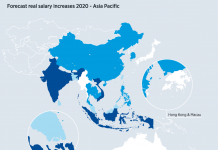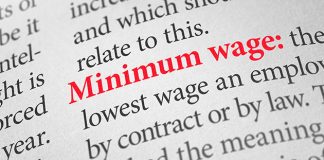Paternity leave is a common sight in contracts and company handbooks around the world. Governments and companies do indeed encourage employees to take paternity leave, with some even being subsidised. However, in some parts of the world employees who do take advantage of these benefits might find themselves performing demeaning and menial tasks after they return.
Despite the growing encouragement for it, there is still a stigma hanging over those who take paternity leave. Even when companies openly express support for parental leave, critics have noted that the directives aren’t trickling down to employees on the ground. In Japan especially where work culture is taken to the extreme, it is evident that employees who do not keep up with a certain standard are subtly punished.
Currently, there are two on-going high-profile lawsuits taking place in Japan involving “paternity harassment”. Japanese law guarantees both men and women up to one year leave from work after a child is born. Parents aren’t guaranteed pay from their companies, but are eligible for government aid while off. This means that a company cannot simply dismiss an employee for taking a year’s worth of leave. However, as the claimants in both cases have argued, companies find other ways to punish these employees.
These lawsuits are landmark cases. Should the claimants win their legal battles, it would set a precedent among workers and companies throughout Japan and might encourage more fathers to take time off to raise their family. Considering that Japan has been suffering from a declining birthrate over the past few years, the Japanese government has even toyed with the idea of making parental leave mandatory.
One of the claimants, who wishes to remain anonymous in fear of further retribution, claims that his company sidelined him after he took paternity after each of his two sons were born. He was initially assigned to a sales-marketing section at Asics, where he rubbed shoulders with athletes, but was suddenly sent to a warehouse after his first paternity leave in 2015.
After suffering a shoulder injury, he was moved to back to desk work, but he says he is forced to do little. He is assigned odd tasks like translating company policies on holidays and daily hours into English, even though he has minimal foreign language skills and is given no one to report to.
Now, the claimant wants his original assignment back and 4.4 million yen (US$41,000) in damages.
Asic has responded, saying that they will fight the allegations.
“Our company remains committed to pushing diversity, and we plan to foster a work environment and support system so all workers can stay productive during pregnancy, childbirth and child-rearing,” the company said in a statement.
The other ongoing case of paternity harassment involves Glen Wood, a Canadian, who is fighting to get his brokerage manager job back at Mitsubishi UFJ Morgan Stanley.
Wood was still negotiating with his bosses to take three or four weeks of paternity leave when his son was born six weeks premature in Nepal. Wood says his bosses were extremely reluctant to let him take time off, but he decided he had to go. The doctors told him he had to come immediately to see his baby in intensive care.
Wood returned to work five months later, in March 2016, after his son recovered and could be safely brought to Japan. However, he was barraged with what he alleges is harassment at work.
Among other things, Wood’s employers changed his job assignment, reprimanded him for not turning up for meetings he was not invited to, ordered to take DNA tests to prove he was the father of his child, as well as take multiple psychiatric tests, all of which said he was fine. He was then dismissed two years later.
“Whenever anybody puts up their hand and says they’re harassed, basically that person becomes the weirdo, and that person ends up getting harassed,” Wood said.
Mitsubishi UFJ Morgan Stanley denies any paternity harassment and has stressed it intends to fight the allegations in court.
The issue of employers making an example out of employees who take advantage of their right to parental leave needs to be addressed one way or the other. Employee rights need to be made clear, abide by labour laws, and be respected by companies.






















